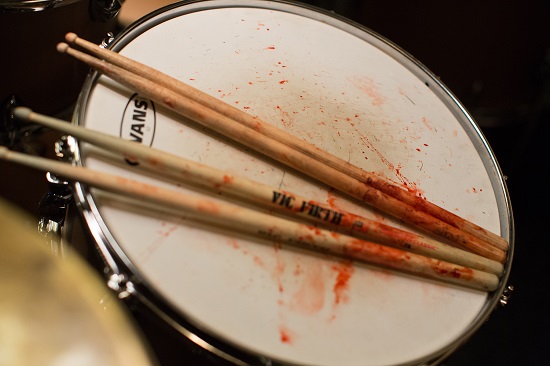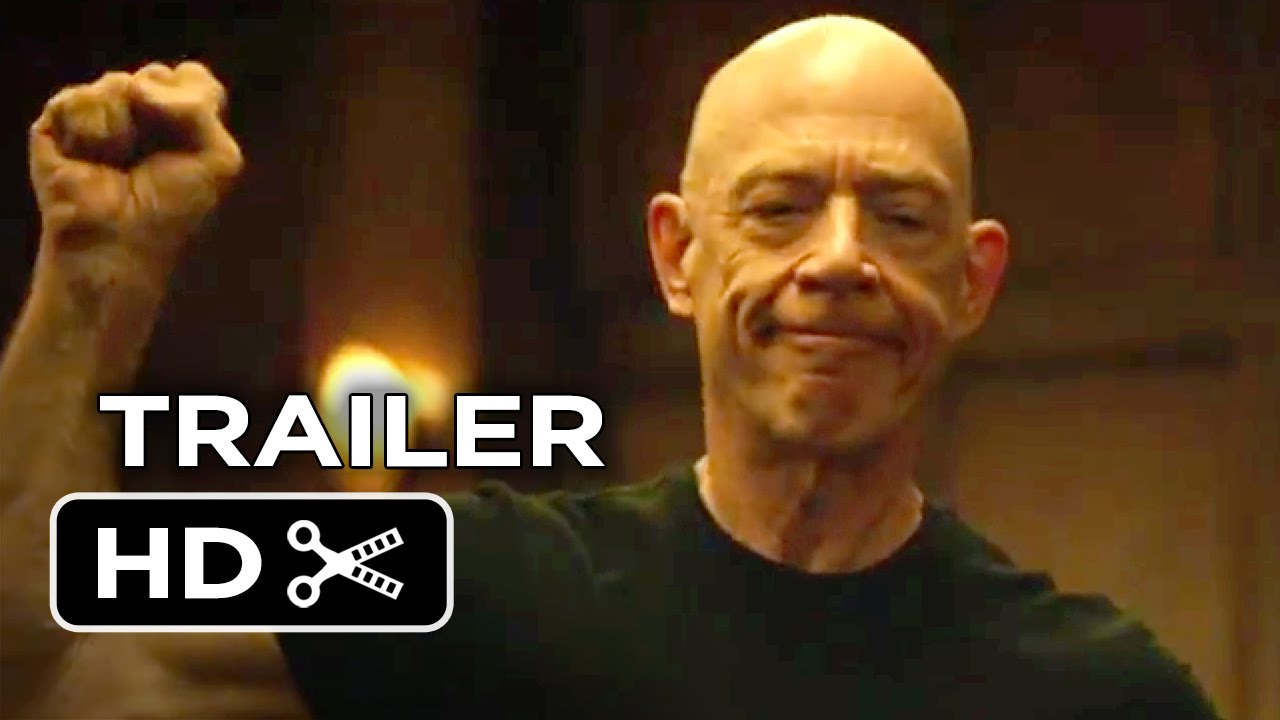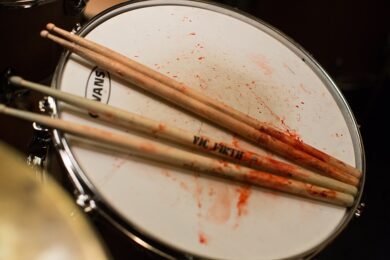Some of us are lucky enough to have had a really inspiring teacher, someone who made you want to work really hard to impress them. And maybe if their praise was hard to come by then you just craved it even more – because if you got it, it tasted all the sweeter. For his latest film, writer-director Damien Chazelle has created a certain kind of inspiring teacher – a character who should go down in film history as one of the great intimidators, alongside There Will Be Blood‘s Daniel Plainview, The Night Of The Hunter‘s Harry Powell and Full Metal Jacket‘s Sergeant Hartman.
In Whiplash, the fearsome Terence Fletcher, played by JK Simmons, is a conductor at an elite music conservatory who handpicks the most promising students for his jazz band. Even when he’s not on screen his presence is felt, and when he is on screen he gets most of the best lines (such as, "Are you one of those single tear people?"). Fletcher plays mind games, throws chairs at his students and works them until they literally bleed. If they break, he replaces them. He’s utterly unlikeable, but completely compelling and believable.
Miles Teller also gives a great performance as Andrew Neiman, a 19-year-old student at the conservatory who’s invited by Fletcher to play drums in his prestigious band. The student-teacher relationship is the driving force behind the film as Andrew struggles to be good enough, and to mature both as a musician and as a man. Along the way, Andrew strips back aspects of his life, including any friends, so that he can focus only on his drumming. No distractions, no compromise.
On paper, Whiplash is a traditional film about rites of passage, inner strength, and the ascension of the underdog; you could easily substitute drumming for boxing, dancing, motor-racing or flying planes. But Chazelle’s film stands with the best of them because it has such strong performances, a lean script and a powerful soundtrack; the sheer physicality of the music draws you in. As a viewer you are there with Andrew: sweating, breathless and, by the end of the film, knackered.
Teller’s drumming is mindboggling – he clearly has some musical as well as acting chops and boy does he use them. But Whiplash isn’t really about the music (you rarely hear a song played in full), it’s about where the music comes from. The film has more in common with an action movie than a cerebral drama. It doesn’t lose pace, even when we’re presented with a love interest, and it manages to swerve the saccharine predictability of Hollywood’s usual underdog narrative. Instead it kicks the protagonist squarely in the nuts and then hauls him up by the scruff of his neck, only to drag out his pain a little bit longer. Right up until the closing minutes you’re never sure if he’ll make it or not, and that gnawing doubt is thrilling.
Whiplash is certainly a gutsy film, and very self-assured for a director of 29 who’s only made one other feature. Chazelle’s directorial debut (2009’s Guy And Madeline On A Park Bench) and his next film (La La Land, set to star Miles Teller again, alongside Emma Watson) are also about jazz musicians, so he’s clearly found himself a niche. Teller’s star is on the rise, too – you’ll see him soon as Reed Richards in The Fantastic Four.
At the heart of Whiplash is the fight against mediocrity. As Fletcher says: "There are no two words more harmful than ‘good job’." Appropriately, Whiplash is no mediocre film; it deserves a standing ovation.
Whiplash is released in the UK on 16 January




